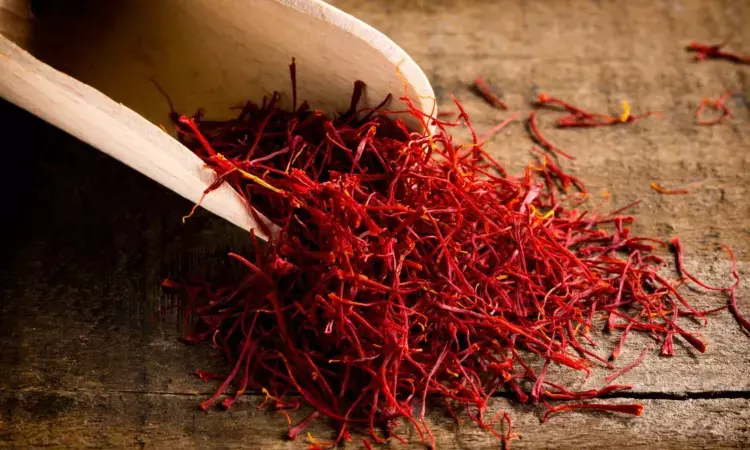- Home
- Medical news & Guidelines
- Anesthesiology
- Cardiology and CTVS
- Critical Care
- Dentistry
- Dermatology
- Diabetes and Endocrinology
- ENT
- Gastroenterology
- Medicine
- Nephrology
- Neurology
- Obstretics-Gynaecology
- Oncology
- Ophthalmology
- Orthopaedics
- Pediatrics-Neonatology
- Psychiatry
- Pulmonology
- Radiology
- Surgery
- Urology
- Laboratory Medicine
- Diet
- Nursing
- Paramedical
- Physiotherapy
- Health news
- Fact Check
- Bone Health Fact Check
- Brain Health Fact Check
- Cancer Related Fact Check
- Child Care Fact Check
- Dental and oral health fact check
- Diabetes and metabolic health fact check
- Diet and Nutrition Fact Check
- Eye and ENT Care Fact Check
- Fitness fact check
- Gut health fact check
- Heart health fact check
- Kidney health fact check
- Medical education fact check
- Men's health fact check
- Respiratory fact check
- Skin and hair care fact check
- Vaccine and Immunization fact check
- Women's health fact check
- AYUSH
- State News
- Andaman and Nicobar Islands
- Andhra Pradesh
- Arunachal Pradesh
- Assam
- Bihar
- Chandigarh
- Chattisgarh
- Dadra and Nagar Haveli
- Daman and Diu
- Delhi
- Goa
- Gujarat
- Haryana
- Himachal Pradesh
- Jammu & Kashmir
- Jharkhand
- Karnataka
- Kerala
- Ladakh
- Lakshadweep
- Madhya Pradesh
- Maharashtra
- Manipur
- Meghalaya
- Mizoram
- Nagaland
- Odisha
- Puducherry
- Punjab
- Rajasthan
- Sikkim
- Tamil Nadu
- Telangana
- Tripura
- Uttar Pradesh
- Uttrakhand
- West Bengal
- Medical Education
- Industry
Saffron supplementation with aerobic exercise may lower blood sugar and inflammation in obese diabetics

Iran: A combination of saffron supplementation at 400 mg/day dose and aerobic exercise could improve metabolism, inflammation, lipid profile, and blood sugar status in type 2 diabetes patients, a recent study in the MDPI journal Sports has shown. The changes were sustainable at up to 2 weeks of detraining.
Physical inactivity and sedentary behaviour are the major risk factors for type 2 diabetes. Thus, aerobic training, the most favoured training method in the world, could be a crucial strategy to counter T2DM. Aerobic training lowers the risk of many conditions, including T2DM, heart disease, obesity, metabolic syndrome, high blood pressure, stroke, and certain cancer types.
Another strategy to fight T2DM is supplementation. However, studies have shown that taking chemical supplements may lead to adverse side effects, which has shifted the attention towards the use of organic supplements with no or fewer side effects. Saffron is one of the most popular organic supplements with several medical applications.
Against the above background, Ali Rajabi, University of Mohaghegh Ardabili, Ardabil, Iran, and colleagues aimed to examine the effects of 8-week aerobic training and saffron supplementation on metabolism and inflammation in middle-aged obese women with T2DM.
The study included thirty-two obese women with type 2 diabetes mellitus. They were randomly categorized into four groups; each group comprised eight women:-- placebo + training (PT), saffron + training (ST), saffron supplementation (SS), and placebo (P). The PT and ST groups conducted eight weeks of aerobic training (three sessions per week at 60–75% HRmax). Saffron powder at a daily dose of 400 mg was given to the SS and ST groups for eight weeks. Blood samples were collected following 12 h of dating, 48 h before the first session of aerobic training, 48 h and two weeks after the last session of AT.
The study led to the following findings:
- Saffron supplementation, aerobic training and their combination affected homeostatic model assessment for insulin resistance (HOMA-IR), body mass index (BMI), and serum levels of insulin, interleukin-6 (IL-6), adiponectin, high-density lipoprotein cholesterol (HDL-C), cholesterol, and triglyceride (TG).
- Body weight, body fat percentage, serum glucose levels, resistin, tumour necrosis factor-alpha (TNF-α), low-density lipoprotein cholesterol (LDL-C), and irisin showed remarkable changes in the ST group only.
- The researchers observed a significant difference between all factors in post-training and follow-up in the ST group.
"Supplementation with saffron at a dose of 400 mg/day in combination with aerobic exercise improves metabolism, lipid profile, blood sugar status, and inflammation in patients with type 2 diabetes, and these changes are continual at up to 2 weeks of detraining," the researchers concluded.
Reference:
Rajabi A, Khajehlandi M, Siahkuhian M, Akbarnejad A, Khoramipour K, Suzuki K. Effect of 8 Weeks Aerobic Training and Saffron Supplementation on Inflammation and Metabolism in Middle-Aged Obese Women with Type 2 Diabetes Mellitus. Sports (Basel). 2022 Oct 30;10(11):167. DOI: 10.3390/sports10110167. PMID: 36355818
Dr Kamal Kant Kohli-MBBS, DTCD- a chest specialist with more than 30 years of practice and a flair for writing clinical articles, Dr Kamal Kant Kohli joined Medical Dialogues as a Chief Editor of Medical News. Besides writing articles, as an editor, he proofreads and verifies all the medical content published on Medical Dialogues including those coming from journals, studies,medical conferences,guidelines etc. Email: drkohli@medicaldialogues.in. Contact no. 011-43720751


